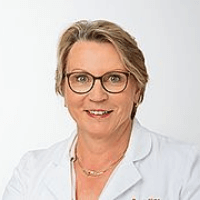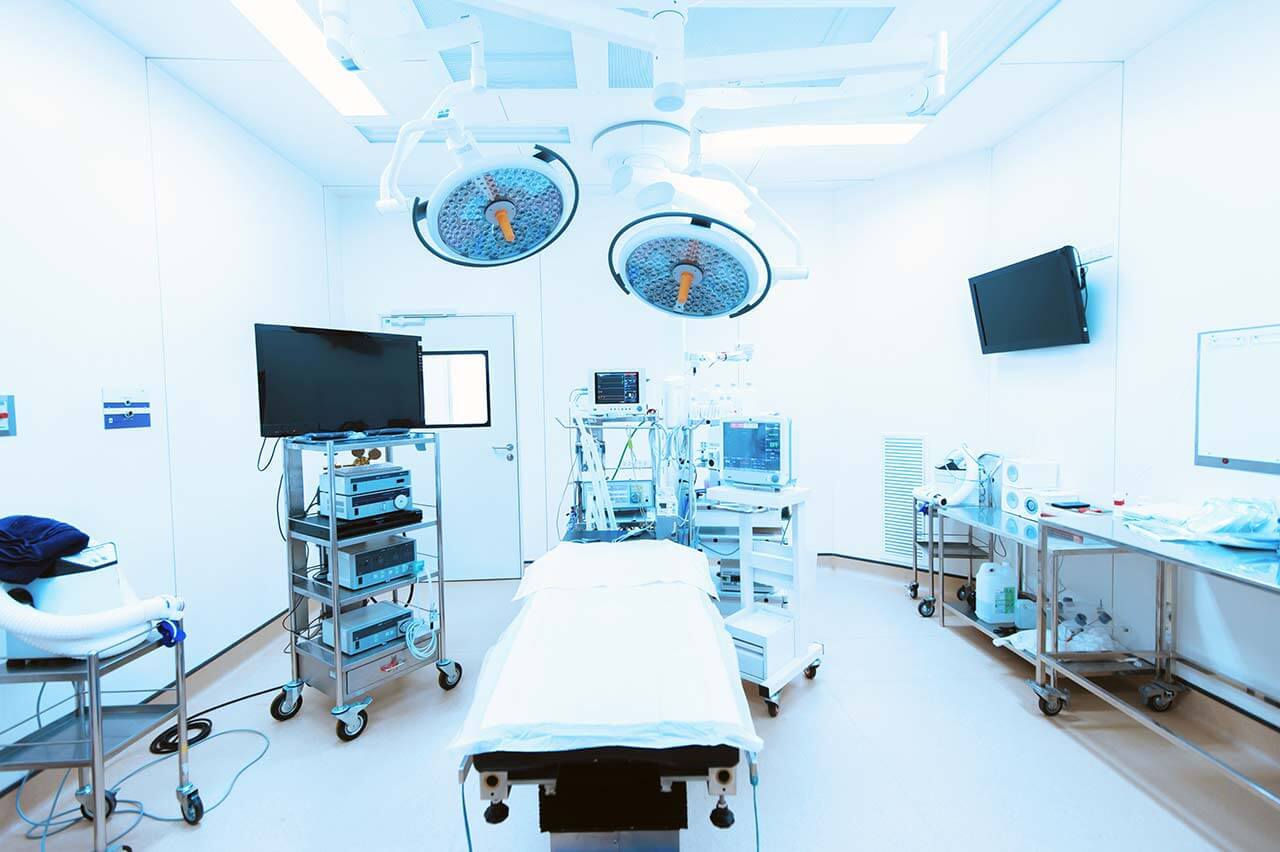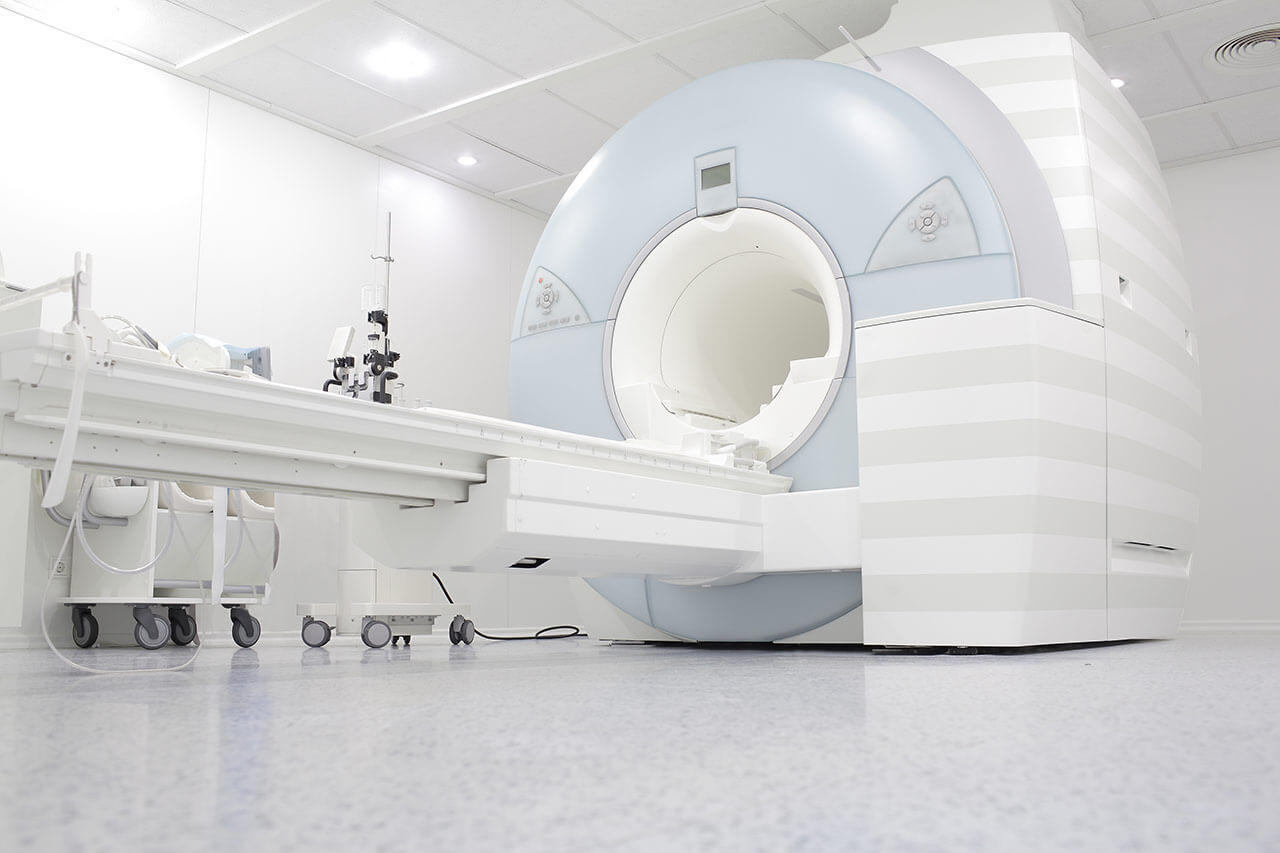
The program includes:
- Initial presentation in the clinic
- clinical history taking
- review of medical records
- physical examination
- laboratory tests:
- complete blood count
- general urine analysis
- biochemical analysis of blood
- autoimmune tests
- analysis of tumor markers
- PSA
- inflammation indicators
- indicators blood coagulation
- cystoscopy with biopsy
- pelvic/ abdominal ultrasound
- consultation of related specialists
- symptomatic specific treatment
- the cost of essential medicines and materials
- nursing services
- control examinations
- full hospital accommodation
- developing of further guidance
Required documents
- Medical records
- Kidney US (if available)
- MRI/CT scan (if available)
Service
You may also book:
 BookingHealth Price from:
BookingHealth Price from:
About the department
The Department of Neurology at the ATOS Clinic Heidelberg provides a wide range of medical services in its area of specialization. The healthcare facility is responsible for the prevention, diagnosis, and treatment of diseases of the central nervous system: the brain and spinal cord. The department's team of neurologists focuses on patients with cerebrovascular accidents and their complications, multiple sclerosis, Parkinson's disease, and epilepsy. The doctors have special competence in the treatment of geriatric pathologies of the central nervous system, with a special emphasis on the treatment of various types of dementia and Alzheimer's disease. The department also diagnoses and treats diseases of the peripheral nervous system. The medical facility has advanced diagnostic equipment for electroencephalography, electroneurography, electromyography, registration of evoked potentials (SEP, VEP, and AEP), and Doppler ultrasonography. There is also an in-house laboratory for laboratory tests for suspected neurological diseases. The therapeutic offer includes drug therapy with various groups of medicines with scientifically proven effectiveness. The department provides treatment in full compliance with the current recommendations of the German Society of Neurology (DGN). The department is headed by Dr. med. Kathrin Elze.
The department's specialists have many years of experience in the treatment of multiple sclerosis. The immune system of patients with this neurological disorder mistakenly attacks and destroys the myelin sheath of nerve fibers, resulting in the formation of scar connective tissue in the area of myelin loss, which can distort or completely block electrical impulses. Multiple sclerosis is most commonly diagnosed in young and middle-aged people, mainly in women. The reasons for its development are still unknown. Multiple sclerosis belongs to the category of complex neurological disorders. Without timely diagnosis and treatment, it can cause severe complications and disability. The main symptoms of multiple sclerosis include muscle weakness, a feeling of "pins and needles" sensations, numbness in the back and upper and lower extremities, rapid fatigue, loss of balance and dizziness, visual disturbances and double vision, and facial nerve paralysis; in severe cases, spontaneous defecation and urination may also occur. During the diagnosis of suspected multiple sclerosis, the department's doctors review the patient's medical history, clarify the severity of symptoms, conduct an MRI scan, a lumbar puncture with a cerebrospinal fluid analysis, and also register evoked potentials. As for the treatment, it is based on drug therapy with corticosteroids, immunostimulants, immunoglobulin, and other groups of drugs.
An important area of the department's daily clinical practice is the treatment of Parkinson's disease, a degenerative pathology of the central nervous system that causes severe movement disorders and postural disorders. Parkinson's disease occurs due to the death of dopamine-producing cells in the nervous system. Dopamine is a hormone and a neurotransmitter that affects mood and motivation. The disease is usually diagnosed in older people. The standard diagnostic protocol for suspected Parkinson's disease includes electroencephalography to assess the electrical activity of the brain, CT and/or MRI scans, transcranial sonography, and recording of evoked potentials; additional tests may also be performed as needed. If the diagnosis is confirmed, the department's neurologists will develop an optimal treatment regimen for the patient. Parkinson's disease remains an incurable pathology, so the efforts of specialists are aimed at alleviating symptoms and maintaining a high quality of life for the patient. Treatment is based on drug therapy aimed at restoring dopamine levels and the balance of neurohormones. Physical therapy and massage have a beneficial effect on the condition of a patient with Parkinson's disease.
The department's team of neurologists also specializes in the treatment of dementia. The doctors most often deal with senile dementia. The disease occurs against the background of general aging of the body and associated pathological changes after the age of 65. Senile dementia causes irreversible damage to the central nervous system, but properly selected treatment can slow down the pathological process and provide the patient with a satisfactory quality of life. The main manifestations of dementia are considered to be thinking disorders, disorientation in space and time, unsteady gait, memory disorders, speech disorders, fine motor disorders, and difficulties in perceiving new information. The first stage of diagnosis for suspected senile dementia is an assessment of the patient's psychological status using special scales. The specialists of the department then perform a series of laboratory tests, and the final stage of the examination is instrumental diagnostics using electroencephalography, CT and/or MRI scans, and PET-CT scans. Treatment tactics for dementia depend on the type and severity of the disease. Therapeutic measures are aimed at stabilizing the function of the nervous system, normalizing the patient's behavior, and improving his or her quality of life. The main method in the arsenal of the department's doctors in the fight against dementia is drug therapy, the intensity and duration of which are determined individually.
The department's key clinical focuses include the following:
- Diagnostics and treatment of cerebrovascular accidents and their complications
- Diagnostics and treatment of multiple sclerosis
- Diagnostics and treatment of Parkinson's disease
- Diagnostics and treatment of epilepsy
- Diagnostics and treatment of dementia
- Diagnostics and treatment of Alzheimer's disease
- Diagnostics and treatment of diseases of the peripheral nervous system
- Diagnostics and treatment of other neurological disorders
The department's range of diagnostic and therapeutic services includes the following:
- Diagnostic options
- Electroencephalography
- Electrophysiological studies
- Electroneurography
- Electromyography
- Registration of evoked potentials (SEP, VEP, AEP)
- Doppler ultrasound
- Laboratory tests
- Therapeutic options
- Drug treatment: pills, injections, and infusions
- Other medical services
Curriculum vitae
Higher Education and Postgraduate Training
- 1979 - 1985 Medical studies, University of Leipzig.
- 1988 Thesis defense, University of Leipzig.
- 1992 Board certification in Neurology and Psychiatry.
Professional Career
- 1985 - 1989 Residency, Hubertusburg Clinic at the University of Leipzig.
- 1989 - 1992 Residency, Department of Neurology, University Hospital Heidelberg.
- 1993 - 2014 Joint Private Neurology and Psychiatry Clinic with Dr. Olga Scheiner.
- 2008 - 2020 Joint Private Neurology and Psychiatry Clinic with Dr. Stella Covtun.
- 01.2021 - 06.2021 Neurologist and Psychiatrist at the Clinic of Dr. Stella Covtun and Dr. Dieter Lemke.
- Since 2004 Certified Expert of the German Society for Neuroscientific Assessment (DGNB).
- Since 2005 Additional qualification in Special Pain Management.
- Since 2014 Certified Medical Expert, Swiss Insurance Medicine (SIM).
Memberships in Professional Societies
- German Society of Neurology (DGN).
- German Association for Psychiatry, Psychotherapy and Psychosomatics (DGPPN).
- German Society for Pain Medicine (DGS).
- German Society for Neuroscientific Assessment (DGNB).
Photo of the doctor: (c) ATOS Klinik Heidelberg
About hospital
The ATOS Clinic Heidelberg is a reputable medical complex with high standards of patient care. The clinic was founded in 1991. Since then, it has taken a leading position in the European medical arena in the treatment of diseases of the musculoskeletal system and many other pathologies. The clinic has a highly professional team of doctors, many of whom are world-renowned professors. Specialists work with state-of-the-art equipment. They use classical and innovative treatment methods with high efficiency. Personalized medical care is a priority in the clinic: doctors carefully study each clinical case and develop individual diagnosis and treatment regimens, taking into account each patient's needs and wishes. Patients not only from Germany but also from other countries of the world regularly seek medical help from the clinic, which indicates the outstanding quality of medical services and the high level of trust patients have in the specialists of the ATOS Clinic Heidelberg.
In addition to providing top-notch medical care, the clinic is distinguished by its modern design. When a patient crosses the threshold of the clinic, he or she has the impression that he or she is not in a medical facility but in a luxury hotel. This idea is part of the clinic's working concept because the patient's comfort and psychological state play an important role in achieving successful treatment outcomes. The clinic offers cozy rest areas where patients can distract themselves from the therapeutic process and socialize. It goes without saying that the equipment in the diagnostic, treatment, and operating rooms is of a very high standard, which enables effective and safe treatment.
Patient care is important throughout the therapeutic process. The nursing staff treats each patient's life situation with respect and compassion and surrounds him or her with care. The doctors are focused on the best results, are always open to communication with the patient, and are happy to answer any questions.
More than 96% of patients rate their treatment experience and the quality of medical care at the ATOS Clinic Heidelberg positively.
It should be noted that the clinic is recognized as one of the best in the country in the field of foot surgery, hand surgery, hip, knee, and shoulder surgery, as well as in the field of spine surgery and aesthetic plastic surgery, according to the rating of Focus magazine.
Photo: (с) depositphotos
Accommodation in hospital
Patients rooms
The patients of the ATOS Clinic Heidelberg stay in single and double rooms. The clinic also offers accommodation in enhanced-comfort patient rooms. The patient rooms are made in light colors and modern design to create a comfortable and cozy atmosphere during the patient's stay in the hospital. The standard rooms are equipped with an automatically adjustable bed, a bedside table, a TV, a telephone, and air conditioning. The rooms have Wi-Fi access. Enhanced-comfort patient rooms are additionally equipped with upholstered furniture, a safe, and a mini-bar.
Meals and Menus
The clinic offers delicious and varied meals three times a day: breakfast is served as a buffet, lunch offers a choice of three set menus, and dinner also offers a choice of several set menus. The menu is mainly European cuisine. If, for some reason, you cannot eat all the foods on the menu, you will be offered an individual menu. Please inform the medical staff about your dietary preferences prior to the treatment.
The clinic also has a cozy cafe with a wide range of hot and cold drinks, cakes, snacks, sandwiches, salads, and hot dishes.
Further details
Standard rooms include:
![]() Toilet
Toilet
![]() Shower
Shower
![]() Wi-Fi
Wi-Fi
![]() TV
TV
Accompanying person
Your accompanying person may stay with you in your patient room or at the hotel of your choice during the inpatient program.
Hotel
You may stay at the hotel of your choice during the outpatient program. Our managers will support you for selecting the best option.




